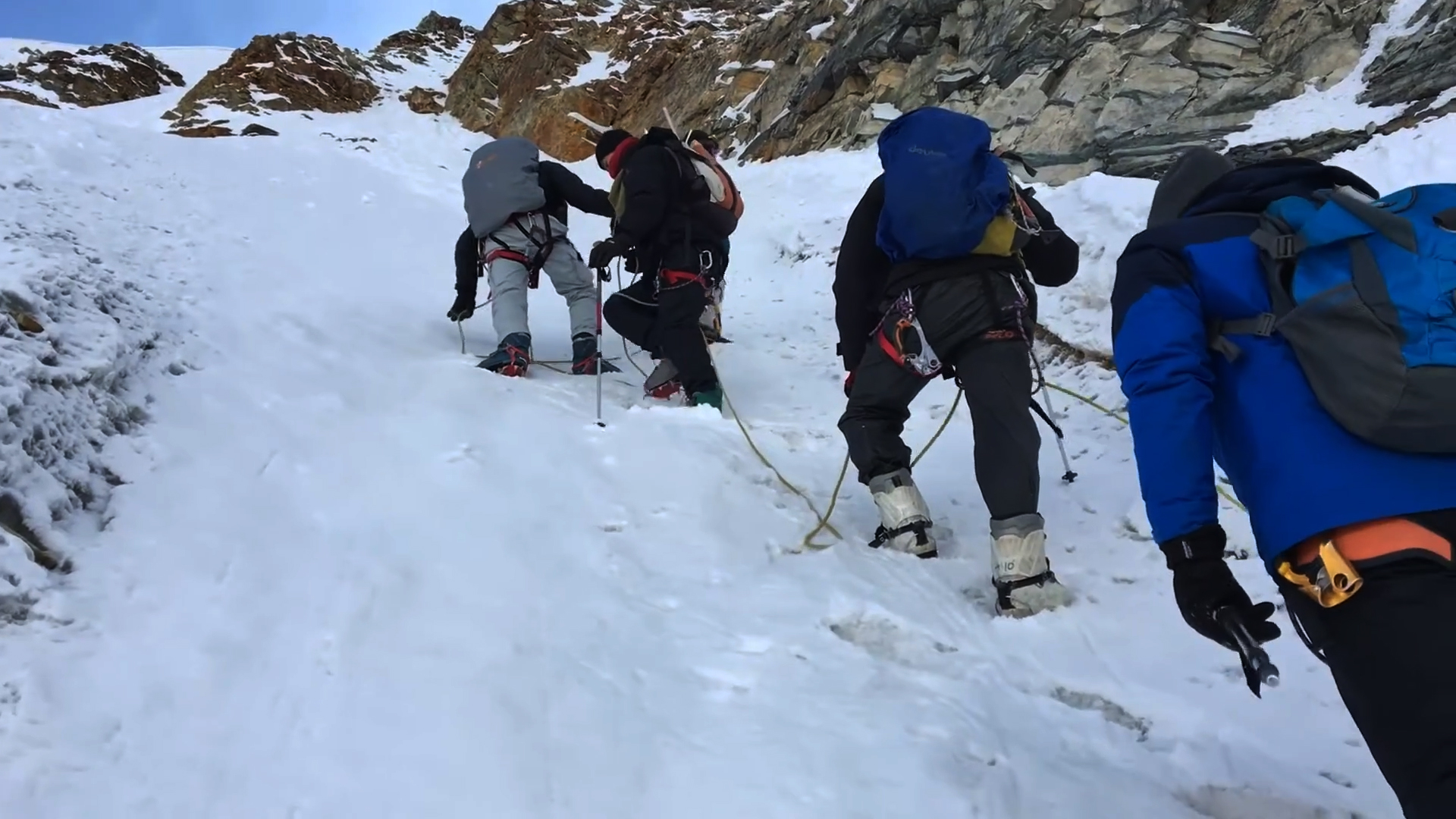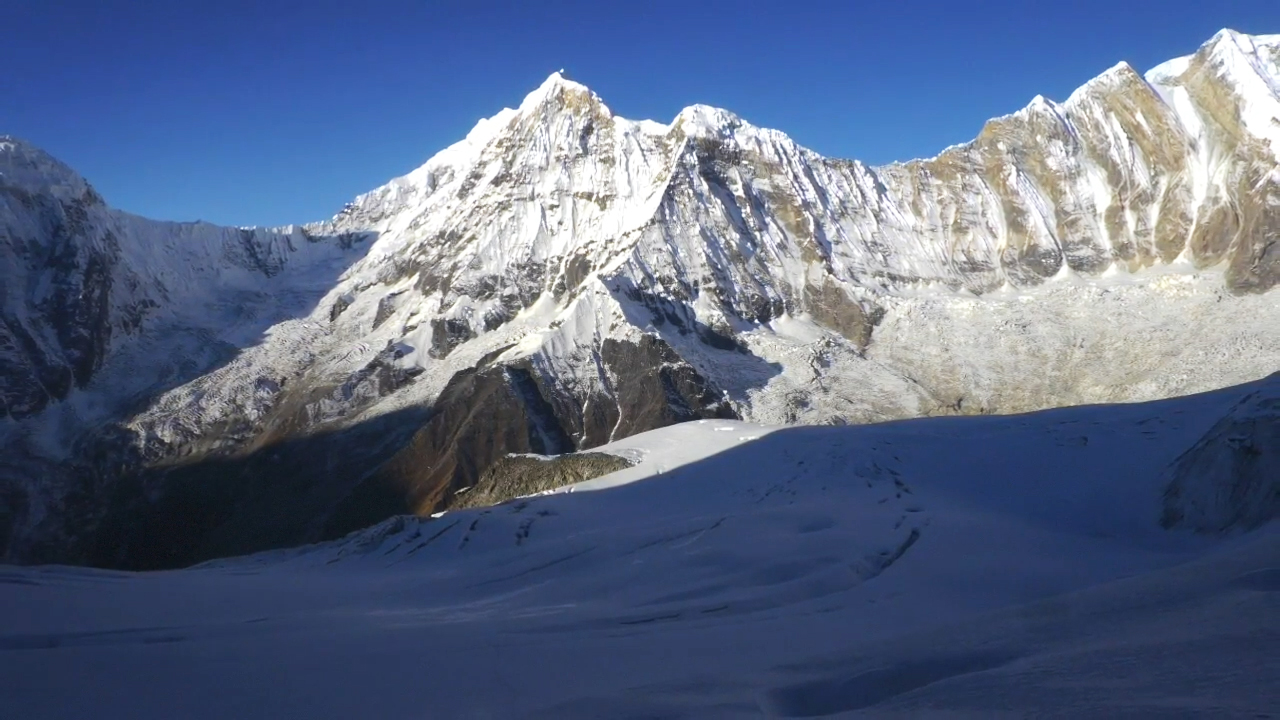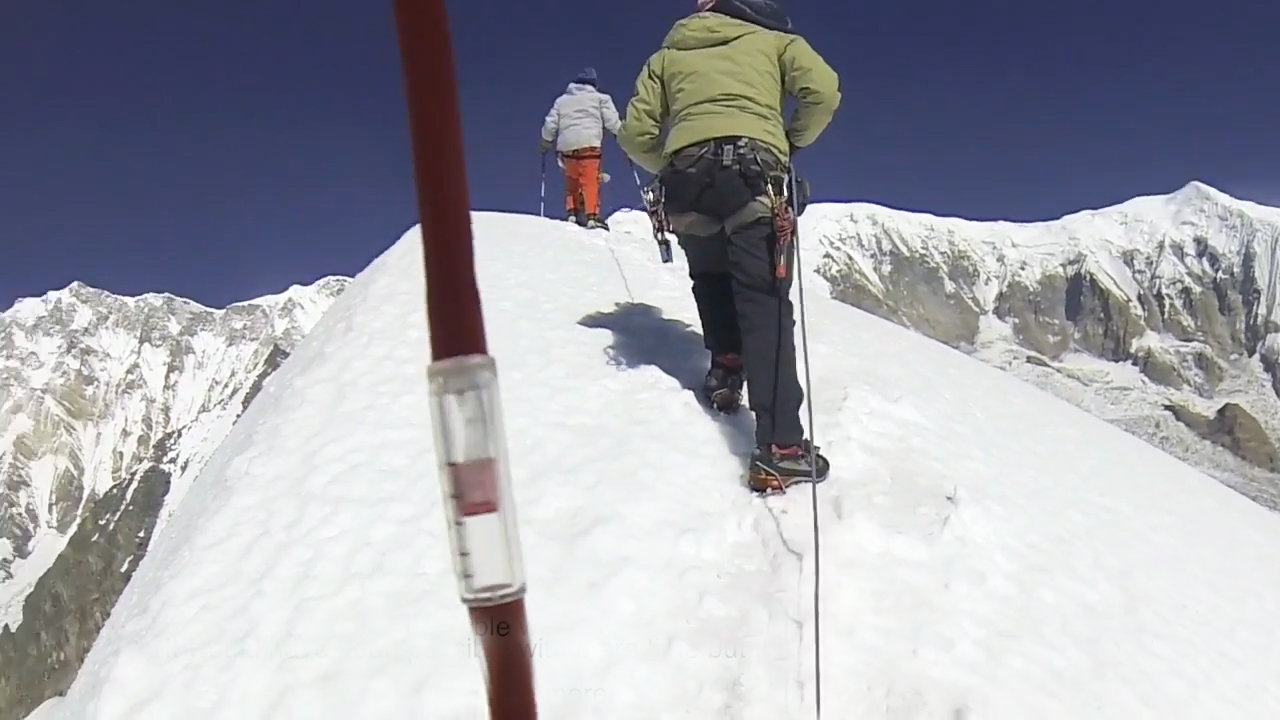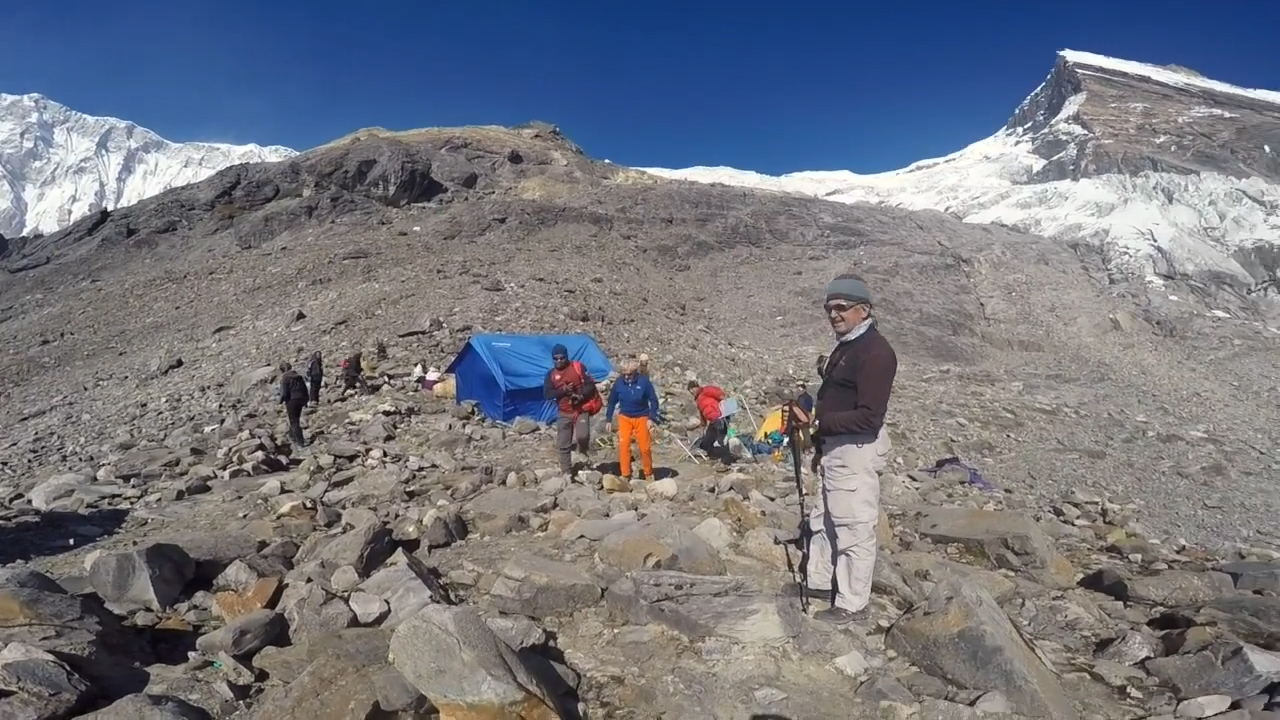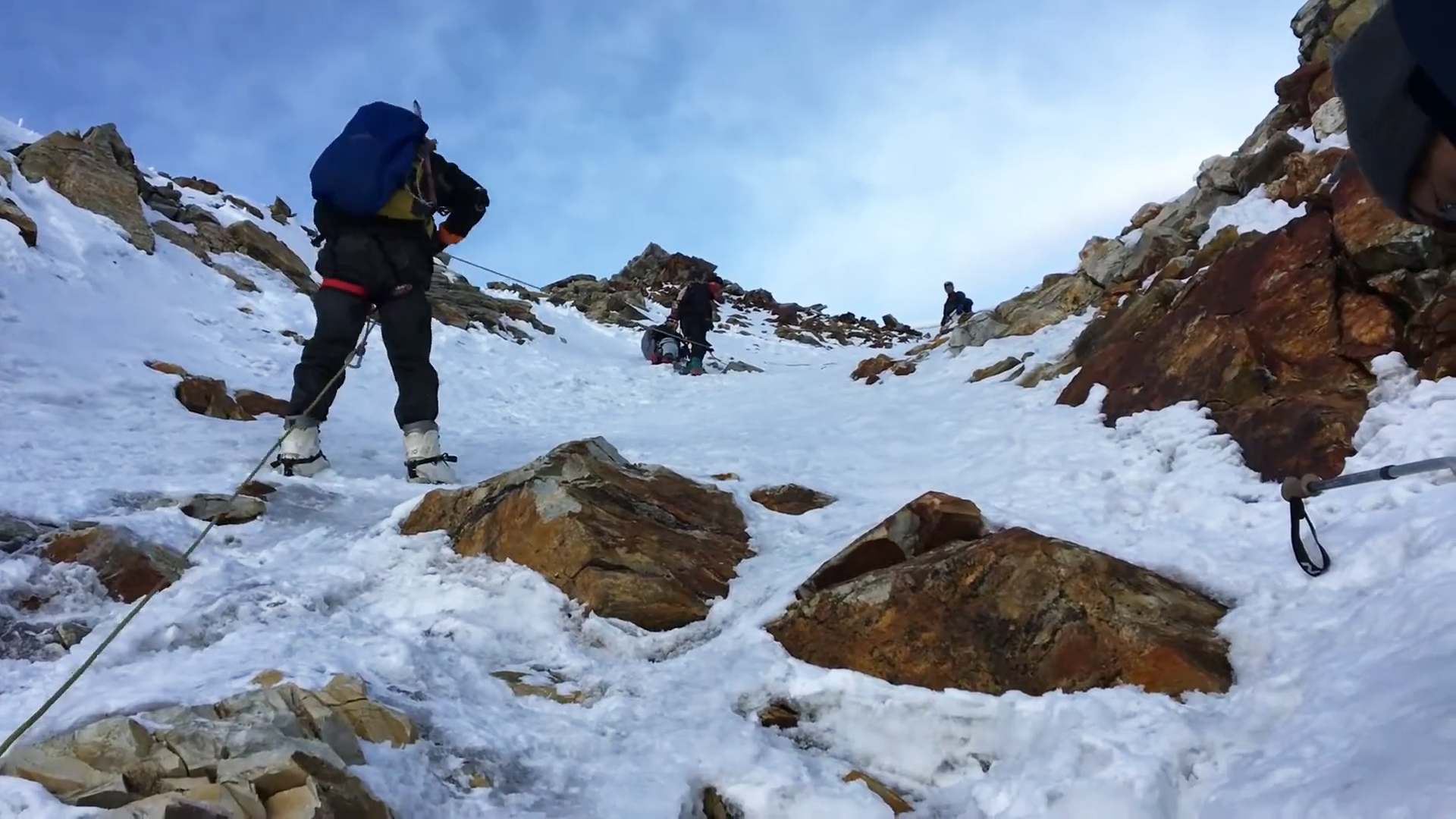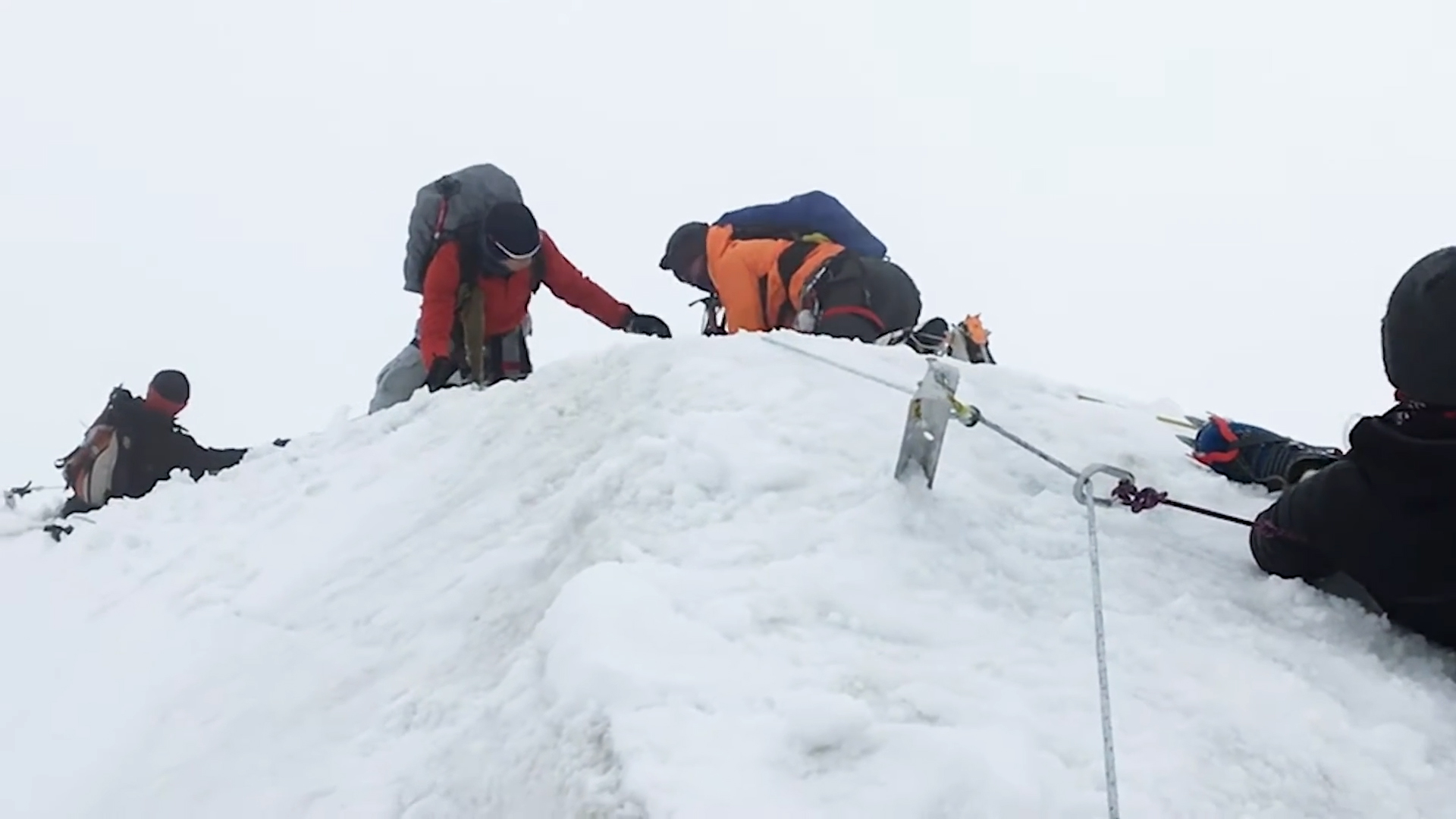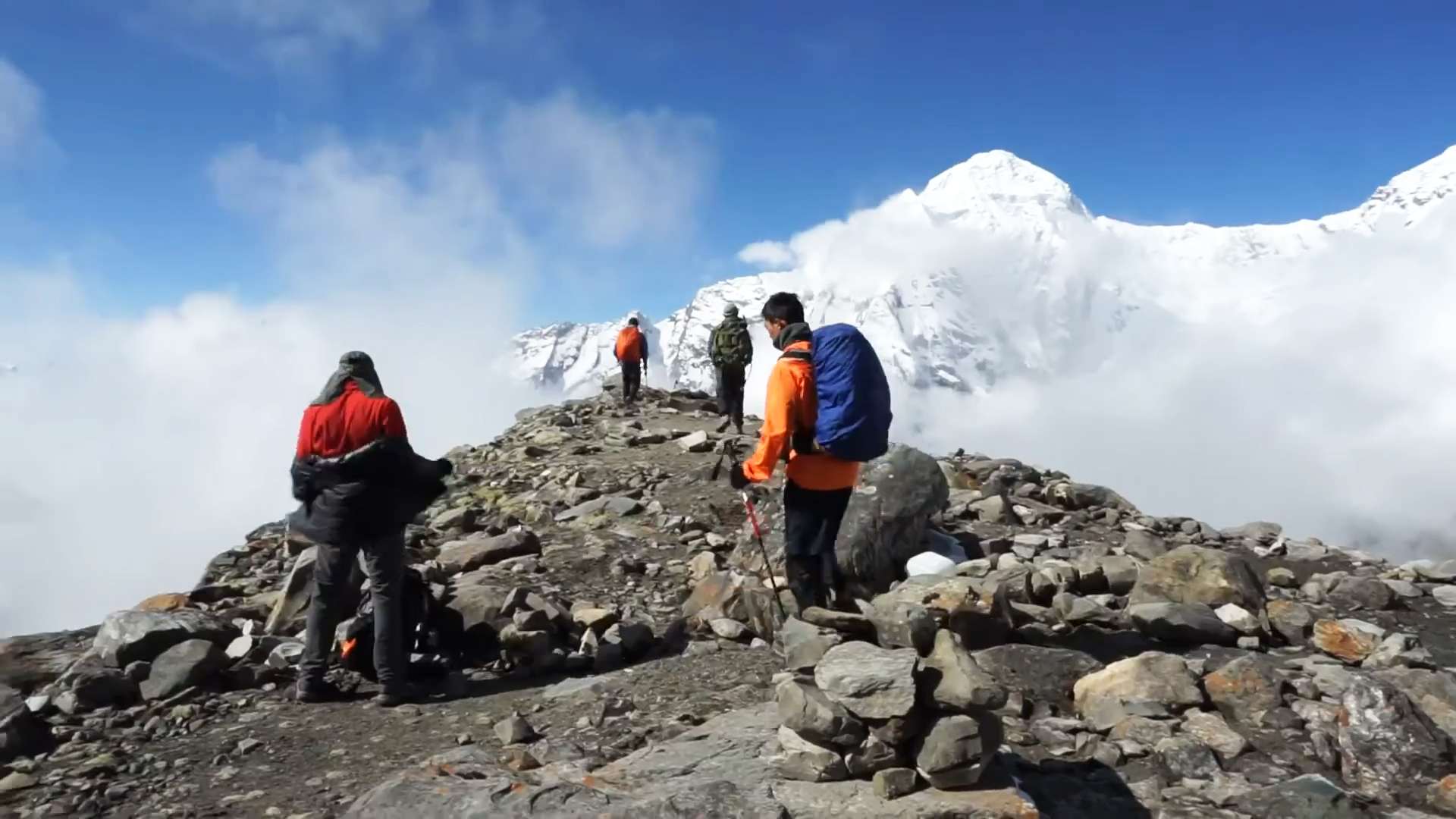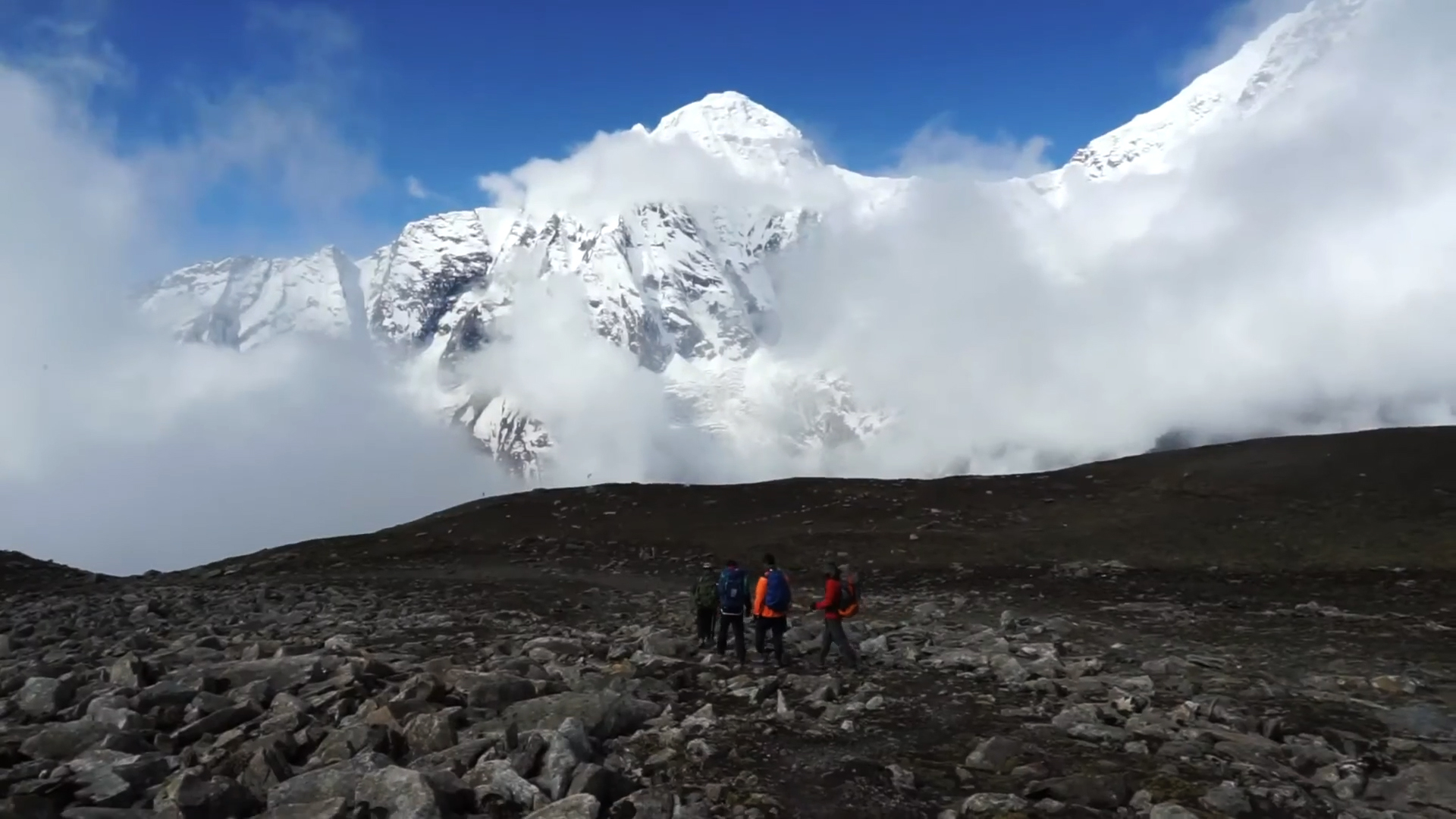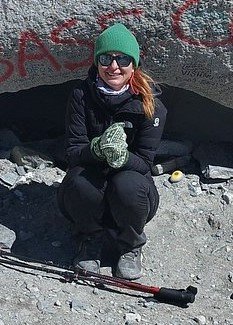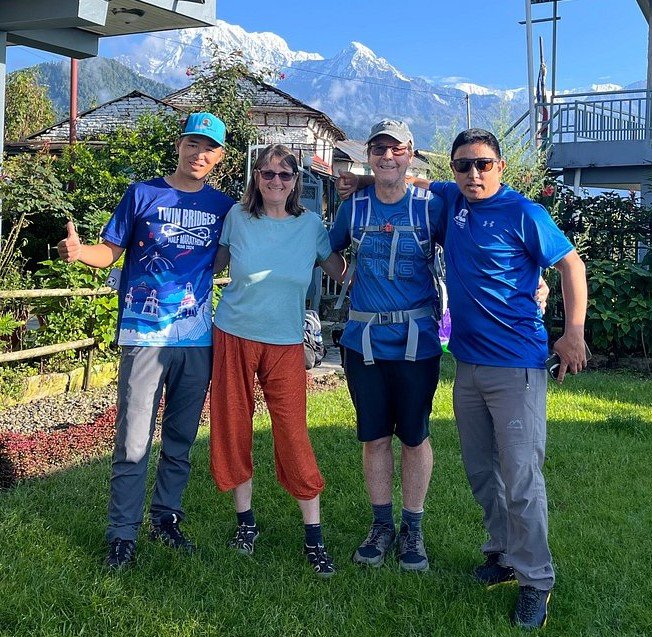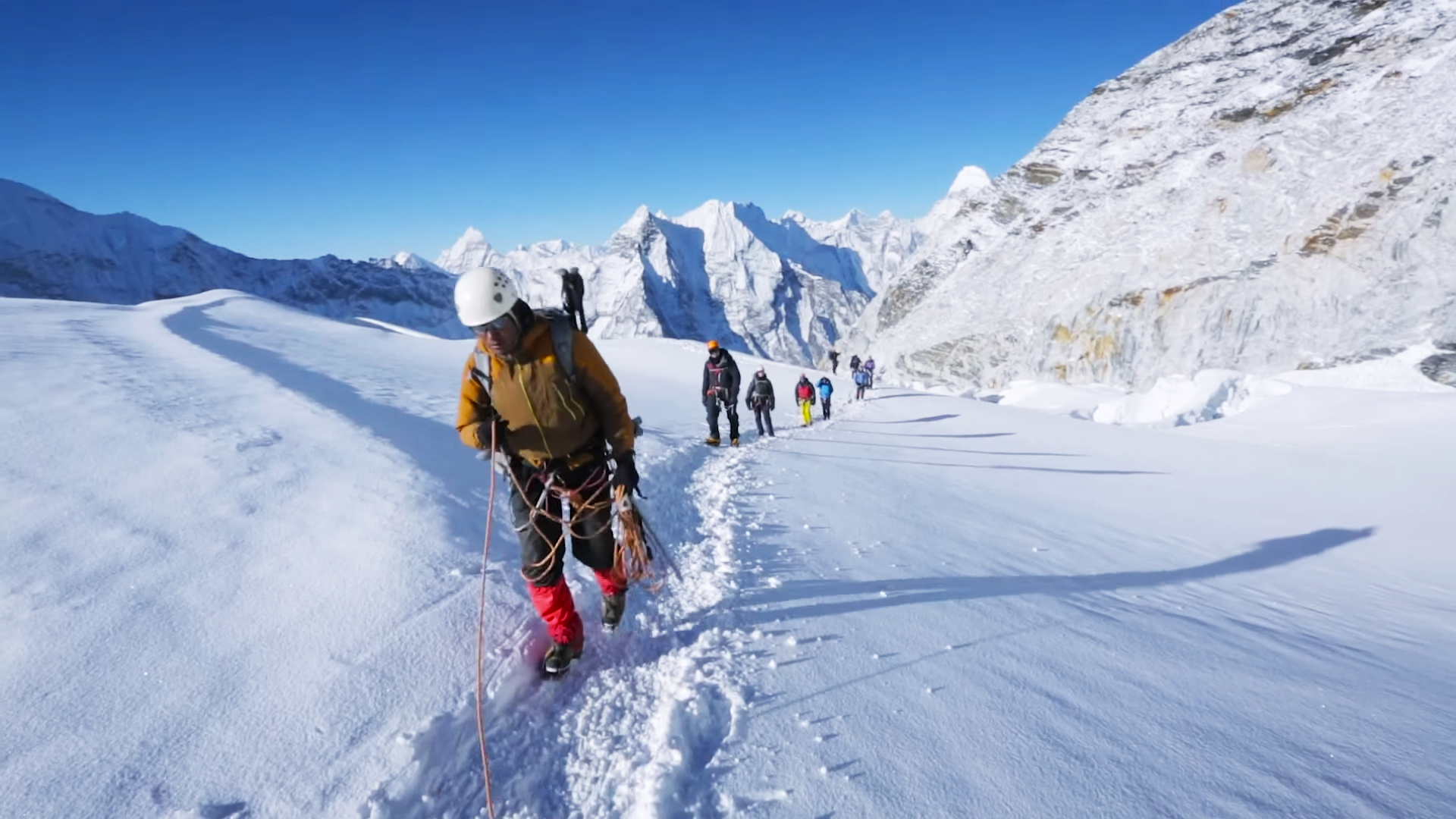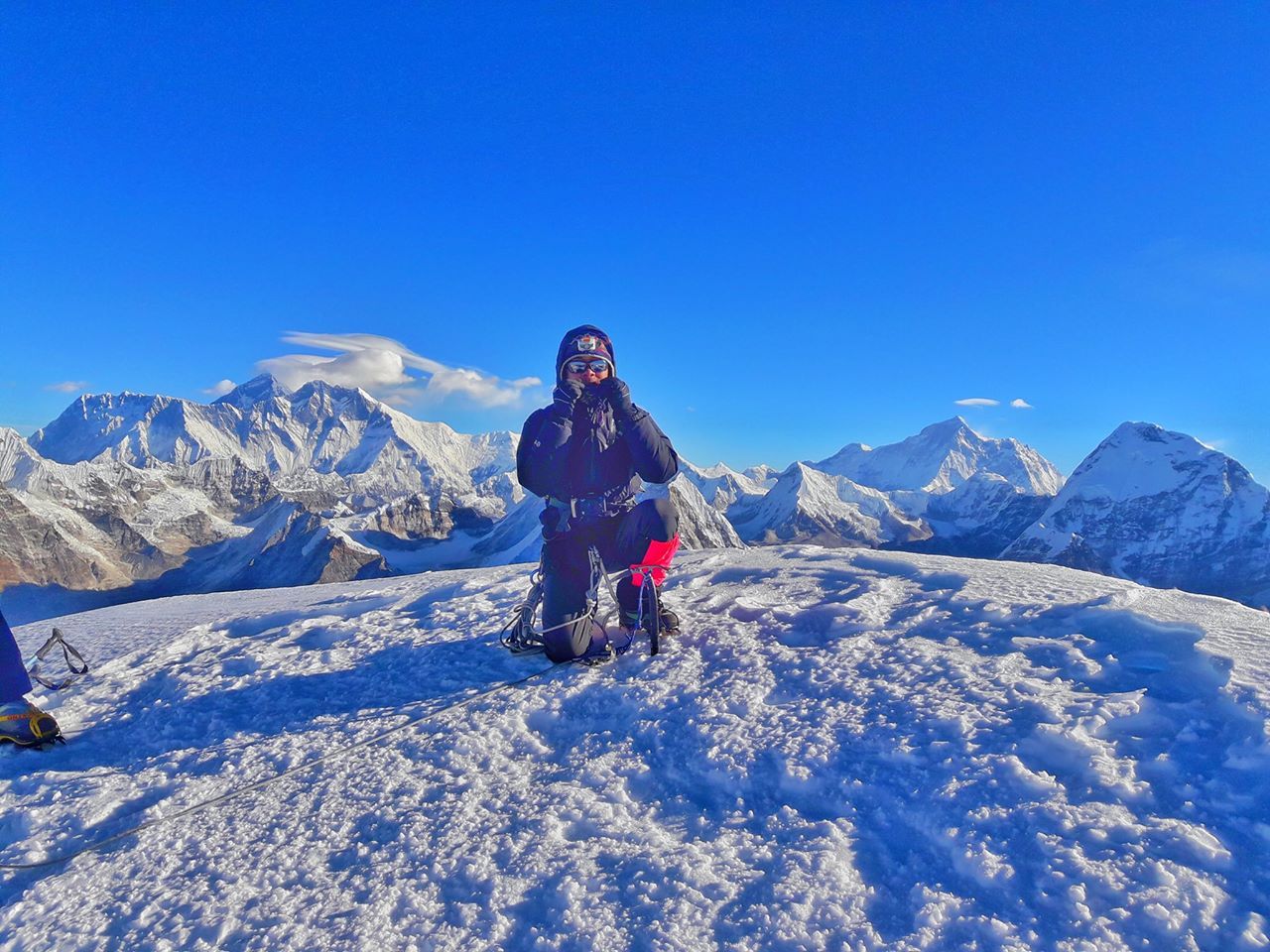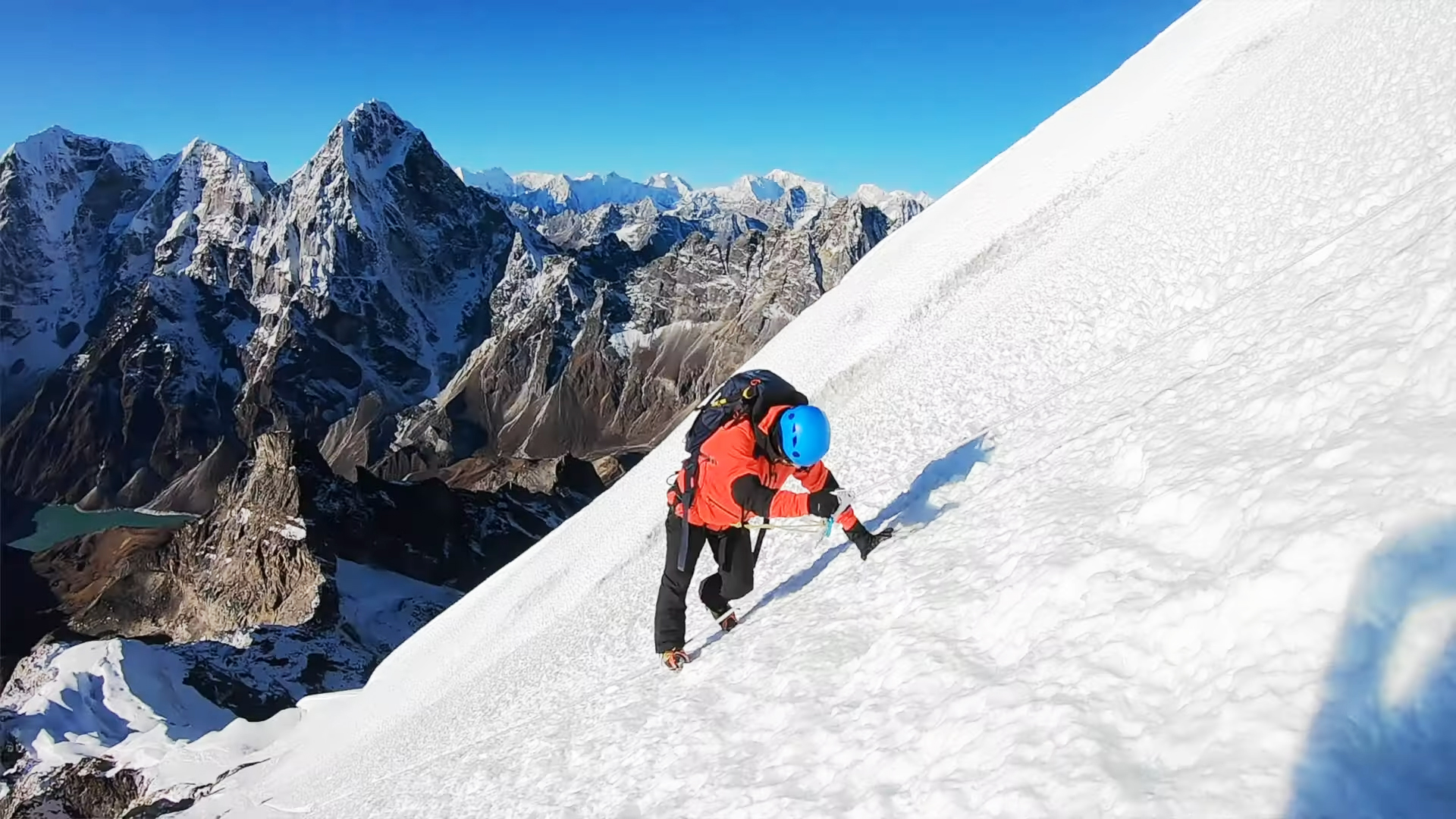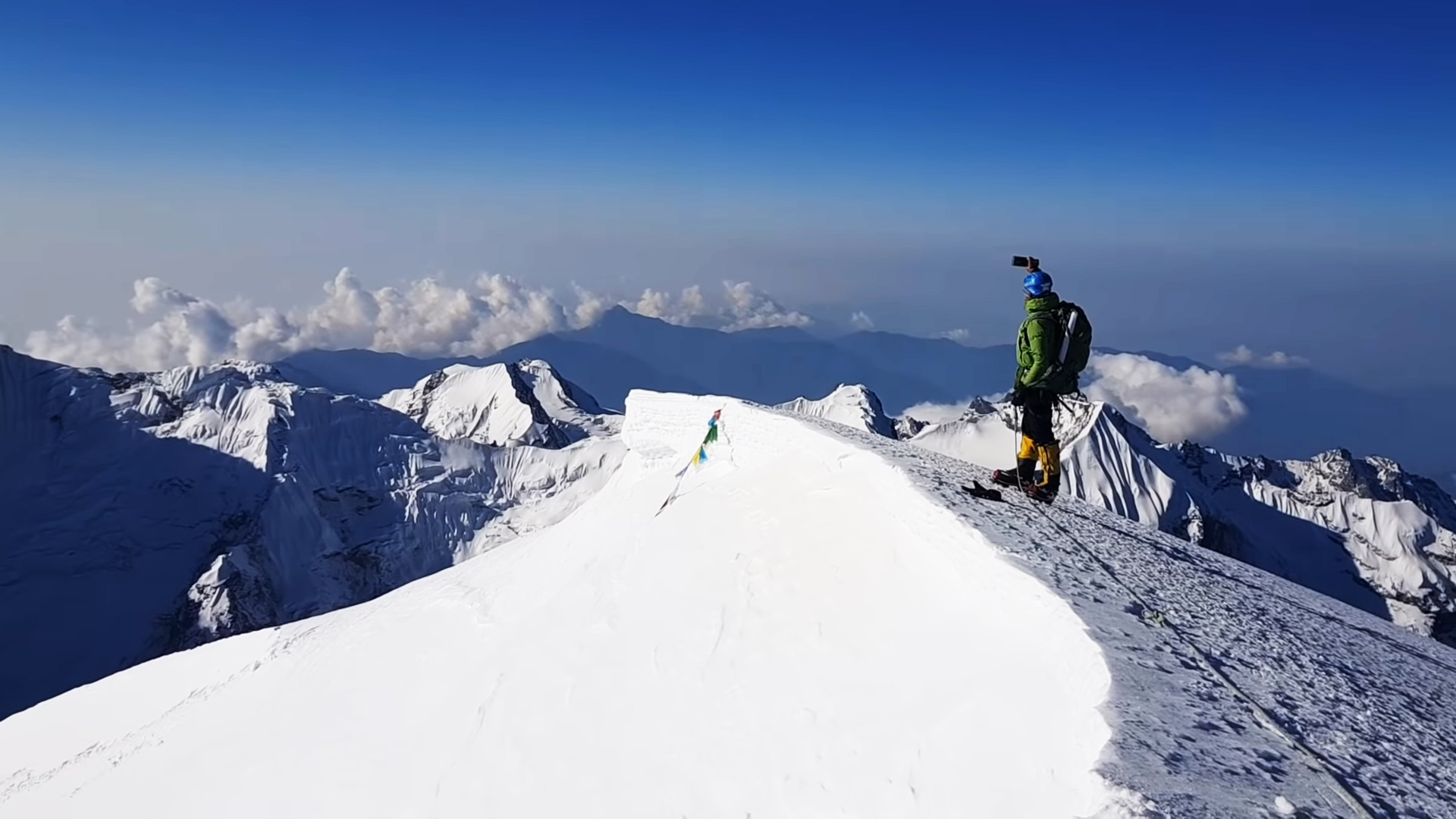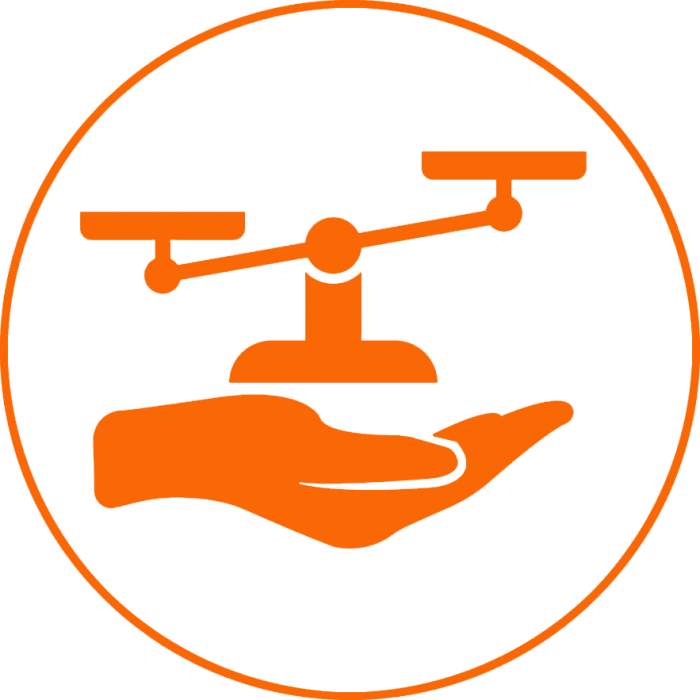Trip Overview
Introduction to Tharpu Chuli Peak Climbing
Tharpu Chuli Peak Climbing is the perfect combination of trekking and climbing in the Annapurna region. People call this peak Tent Peak, and it lies in Nepal’s Annapurna region.
At a relatively low altitude, the peak still stands out as a beautiful, snow-capped mountain. The top of the peak offers spectacular views of Annapurna, Annapurna South, Annapurna III, Annapurna V, Macchapucchre, Hiunchuli, Singu Chuli, and Gangapurna Mountains.
Climb the exciting peak and enjoy the beauty of the Annapurna region of Nepal from the top of the peak. Tharpu Chuli Peak Climbing in Nepal is for those adventurous travelers who want to do something more exciting and thrilling than trekking.
Tharpu Chuli Peak Climbing passes through picturesque villages of various ethnic groups, dense rhododendron forests, and alpine vegetation areas. The most enjoyable part of your entire trip is the snow-capped mountains that you will always find in your backdrop.
Inside the Annapurna Sanctuary, protected bamboo, alpine vegetation, and dense rhododendron forests create breathtaking views, particularly in spring. Gurungs and Magars primarily inhabit the region. Observing the culture, traditions, and daily life of the locals will be a joy for your campaign.
You may visit: Ultra Light Aircraft in Pokhara City, Phewa Lake, Sarangkot Hill, Mountains
Peak Climbing is not Technically Difficult
Although Tent Peak climbing is not technically demanding and requires no prior technical training, climbers should be physically fit with good endurance. Standing at 5,663 meters, the peak is an excellent choice for less experienced and first-time climbers seeking a rewarding Himalayan adventure.
Before the Tharpu Chuli (Tent Peak) ascent, your team leader provides essential pre-climbing training and a comprehensive briefing. Throughout the climb, a fully trained and experienced Sherpa guide—licensed by the Nepal Mountaineering Association (NMA)—ensures professional support and safety
Climbers must obtain a climbing permit from the NMA office. To receive the permit, all team members must carry both personal and accident insurance.
The best seasons for Tharpu Chuli Peak Climbing are spring (March to May) and autumn (September to November). However, winter is also a good season if you are well-prepared for the cold weather. In winter, the mountain views are crystal clear, and there are fewer trekkers than in spring and autumn. But it is not wise to do this during the monsoon (July to August).
Check out our planned itinerary and email us. Let us know if this itinerary is not suitable for you, and we will tailor it to your requirements. Join us and make your journey an unforgettable moment of your life by combining trekking and climbing in the Himalayan country of Nepal.
You may like to visit: Nepal Cultural Tour in just 12 Days, Itinerary, Cost, Distance, Culture
Trip Itinerary
Drive Kathmandu to Pokhara – 7 to 8 hours.
Drive Pokhara to Nayapul and trek to Ghandruk (1,940 m) – 6 to 8 hours walk.
Ghandruk to Chhomrong (2,170 m) – 6 to 7 hours walk.
Chhomrong to Himalaya Hotel (2,840 m) – 7 to 8 hours walk.
Himalayan Hotel to Annapurna Base Camp (4,130 m) – 7 to 8 hours walk.
Free day for climbing preparation.
Annapurna B.C. to Tent peak Base Camp (4,450 m) – 5 to 6 hours walk.
Tent peak Base Camp to High Camp (5,200 m) – 5 to 6 hours walk.
Summit Tharpu Chuli (Tent Peak) and return to High Camp (5,200 m) - 7 to 8 hours walk.
High Camp to Annapurna Base Camp (4,130 m) -6 to 7 hours walk
Annapurna B.C to Bamboo (2,310 m) – 7 to 8 hours walk.
Bamboo to Jhinu danda (1,760 m) – 6 to 7 hours walk.
Jhinu danda to Nayapul (5 to 7 hours walk) and drive to Pokhara (1 hour).
Drive Pokhara to Kathmandu – 7 to 8 hours.
Why not list the price?
Each client's needs may be different. The price of the trip varies according to the size of your group and the service you want. The cost of the trip is calculated according to the type of service and accommodation chosen by our customers.
Each trip is customized to fit the client's needs and group size, so the price of each organized trip is different. Please let us know the service you want and the size of the group. We create trips to suit your taste and travel budget per your requirements. Hope you find our price calculation reasonable according to your needs and preferences.
Frequently asked questions about this trip
How difficult is the trek?
The difficulty depends on where and how long you want to trek. The short trek is easy while the long trek requires some physical fitness.
What is altitude sickness?
Altitude sickness is normally known as acute mountain sickness. This can happen when people rapidly climb up to an altitude of more than 3000 meters. We ensure minimal risk by adding rest to our trekking itineraries. Most people will feel some effects of altitude, some shortness of breath and possibly light headache, this is normal enough. Acute mountain sickness patients are quite different and usually have a serious headache, sickness, and lose awareness. In almost all possible cases there are sufficient warning signs to take action properly. Descending to a lower altitude is usually enough to prevent any further problems.
What type of accommodation is available during the trekking?
There are mainly tea houses and lodges available for trekking and they are usually made using local materials and are very comfortable. These accommodations are often family-run and usually provide single and double rooms. The dining room is on the ground floor and is often on fire. All food will be cooked in order in the family kitchen. Toilet facilities are sometimes separate and sometimes outside. Most lodges provide mattresses and blankets. It's a good idea to always have a sleeping bag, which can be useful, and perhaps an inflatable pillow.
How long do we walk every day on trekking?
Trekking programs are classified into three different categories: soft, moderate and hard. Soft treks are only about 7 days to 10 days in duration. They generally do not go above 4000 meters; you can expect to walk about 4-5 hours each day. Moderate treks are challenging enough and long treks that go to the high hill country. Physically exhausting, this involves trekking along the cliffs of the mountains for about 6-8 hours. Harder treks are longer treks that go farther away from the general abode of trekkers and tourists. These physically challenging treks involve walking for 7- 9 hours each day.
How much weight do I need to carry on the trek?
You carry some of your personal belongings, such as warm clothing, water, snacks, sun block, cameras and more. Generally, these items will be lightweight, from 5 to 10kg (10 to 20 pounds). Our porters are available for other heavy goods and for your information one porter would be sharing by two people. The maximum weight carried by one porter is total 20 kg. this means 10 kg. per person is allowed for the trek. In case if you wish to carry more than this weight then you need to hire additional porters.
What is the best time for trekking in Nepal?
October and November are considered as the best times for trekking in Nepal due to dry season. December and January are also considered good times for trekking but it is extremely cold at high altitudes.
Google Reviews
Guest reviews
We made it to Everest Base Camp on the 3rd of November!!! Myself and Dami Sherpa, who was the best company and always extremely helpful. Amazing hike and great experience! Fully recommended!

